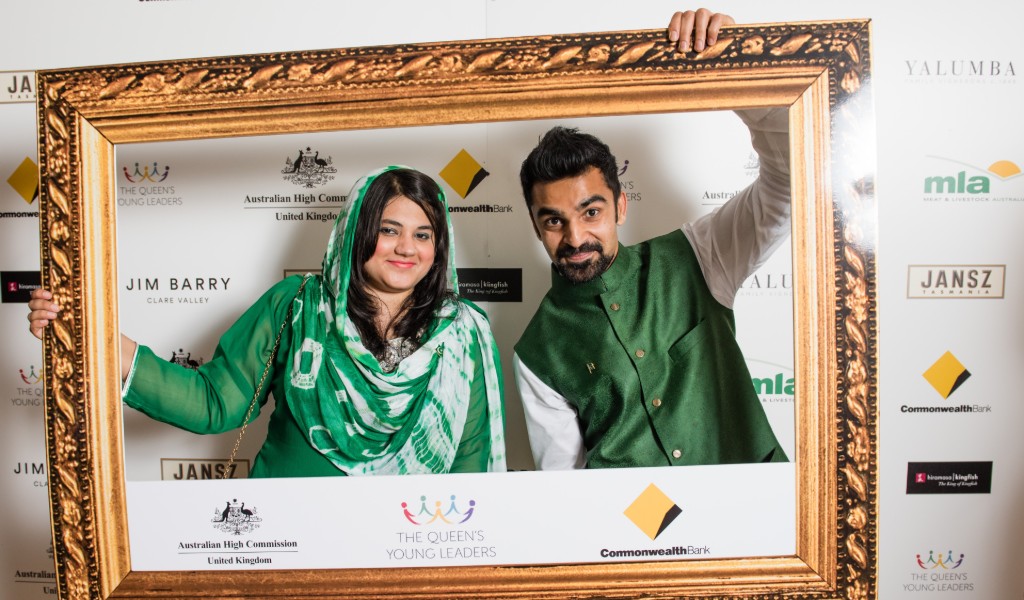2016 Queen’s Young Leaders talk to BBC Asian Network
Published on 01/29/2016

Queen’s Young Leaders Award winners have talked about their work on BBC Asian Network.
Kartik Sawhney, Zainab Bibi (left) and Muhammad Usman Khan (right) joined host Nehal on his radio show, which discusses the big issues affecting Asian young people.
The first Queen’s Young Leader Award winner to speak to Nehal was Kartik, who founded Project STEMAccess, which offers hands-on science workshops in India, as well as virtual training sessions.
Kartik’s aim is to make education accessible to all. Although he was born blind, Kartik excelled in science and technology at school. However, he found it difficult to pursue an education in science. So in 2013 he took up a scholarship at Stanford University in the USA and is now working on a portal that will allow students to convert textbooks into their desired accessible format.
Speaking about living with a disability, he told Nehal: “You do have to be really innovative and not give up.”
He also talked about his desire to return to India and carry on his work. “My whole project is centred around how do you make access to science and technology better for people in the developing world and that is where I will see I can make a contribution,” he said. “In terms of impact I will be able to make more impact in India.”
Zainab also spoke to Nehal about her project, the Pakistan Society for Green Energy, which she established in 2013 to increase awareness of green energy solutions. Through her work she has managed to develop a bioethanol (a bio-fuel) from waste tissue paper, which could help to provide cleaner energy.
Zainab also introduced a plant species from the US into Pakistan that produces bioethanol (biodiesel). ‘Camelina sativa’ has a short growth cycle and a greater resistance to drought, which means that it can be grown in desert areas in Pakistan.
She explained to Nehal that she faced some difficulties at first. “It can be difficult in Pakistan to work on green issues,” she said. “But being an environmental science student I really thought I should start my own organisation, so I established Pakistan Society for Green Energy.”
The final Award winner Nehal interviews was Muhammad who designed an educational programme called Back to Life Edutainment for street children and founded the BEYLI Organisation, which aims to educate and support underprivileged young people.
Muhammad told Nehal he was grateful to his father who had pushed him to get an education, despite the fact that he grew up in a poor village.
In recent years he has returned to his home village and set up the Rethinking Education community school and created a programme called Edupowerment, which teaches students computer skills, English language skills and peace education.
He said: “There was an urge in me that I should open the door to children who don’t have access to education. So after doing this project and studying in several countries, collecting a lot of global knowledge, I went back to my village and right now my organisation is running a community school so that children coming from the families of farmers can get a free quality education.”